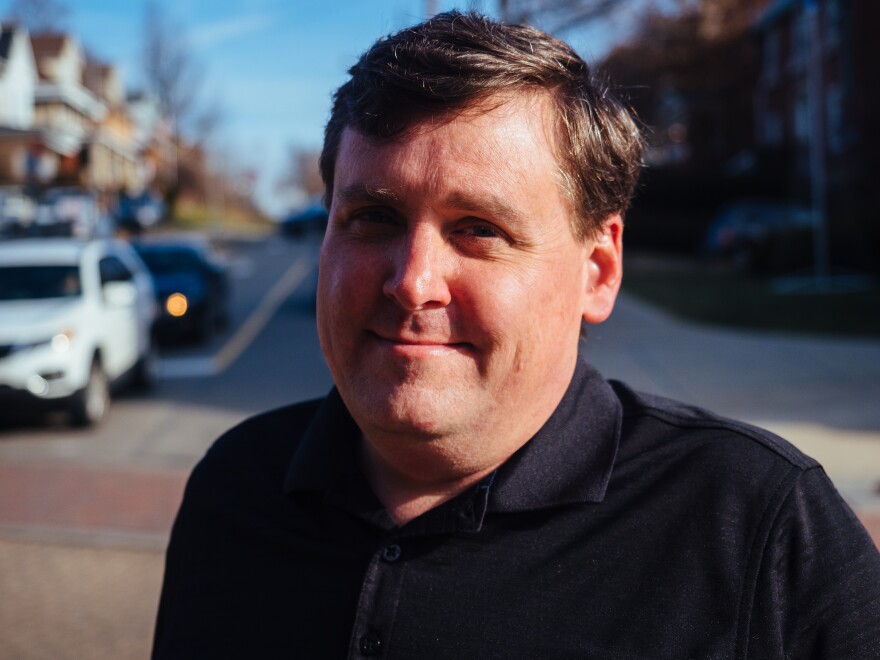During the first few months of this year, the 2020 presidential race dominated the country’s attention – until the coronavirus arrived.
In our Split Ticket series, we’ve been checking in regularly with four western Pennsylvania voters about the candidates and issues that could sway their decision at the ballot box this November.
Of course, this month everyone has been quarantined at home, and thinking of little else besides the pandemic. But rather than uniting behind a common cause, quarantine seems to have pushed our voters further apart.
'I do feel that it's worth it'
Both Democratic voters on our panel say they support government shutdown actions — and, if anything, wish they had taken effect earlier.

“I think if we would’ve maybe been a little bit stricter, things would have panned out differently,” said Savannah Henry, a progressive Democrat and University of Pittsburgh sophomore. “I still think there would be casualties and people would get sick, but I don't think it would be at such a mass level, and I 100 percent think it's because of faulty leadership.”
Henry supported Bernie Sanders, but is less sure of former Vice President Joe Biden, the presumptive Democratic nominee.
She found out school would be offered online for the rest of the semester while she was home on spring break in March. But while she’s been social distancing the whole time, she knows other people who haven’t been.
“St. Patrick's Day was my last day in Pittsburgh, packing up my things and my friend invited me to a quarantine St. Patrick’s get together,” Henry recalled. “It was a group of seniors, so I wanted to go, but luckily I left, so I didn't have that temptation.”
Since then, she’s been at home with her mom in Erie. She said some people she knows are not being as strict about social distancing rules, and other friends are calling them out for it.
“They may not party in super-large groups, but there are still small get-togethers going on,” she said. “I’ve also seen people on social media tweeting and policing people.”

Meanwhile, Democrat Linda Bishop has no plans to leave her home right now. Linda is retired and lives in Mars, Pa. with her husband. Bishop describes her voting habits as purple, and has been registered as a Republican and a Democrat.
“I'm 68 years old, my husband is 74 and has some underlying health conditions and so do I,” she said. “We're avid news consumers, so we were very much aware of everything that was going on with the coronavirus in the early days, so we have been self-isolating since March 10.”
She and her husband decided to go into self-imposed isolation even before Gov. Tom Wolf issued a stay-at-home order. She hasn’t been in a store for more than six weeks. They’ve been buying everything online, do curbside pickup for groceries, and only leave their house to walk the dog.
“It's hard because we don't get to see our kids, we don't get to see our grandson,” she said. “We video chat with him every day, but it's not the same thing ... we just know that's how it has to be for now.”
Bishop recognizes that there are financial and mental challenges that come with quarantining, but she does believe it’s worthwhile to keep social distancing measures in place until the virus is under control.
“I do feel that it's worth it, and if everyone cooperates I think we'll get through it a lot faster and with a lot less death,” she said.
'No end in sight'

Our Republican voters expressed much more ambivalence about how the virus was being handled.
Before the virus hit the U.S, Ed Cwiklinski was applying for jobs and doing some side work in cyber security. His wife had a temp job. His kids were in school. Now, like a lot of parents, Ed and his wife have to do everything.
“We really don't get a moment's rest at all,” he said. “It's actually taking a toll because there's seemingly no end in sight.”
In addition to their two young daughters, Cwiklinski and his wife are also now caring for a friend’s 2-year-old through the foster care system. He’s still looking for work, but the pandemic has prevented a lot of companies from making new hires. His wife can’t work remotely, so the family has no money coming in.
“I can do this for a couple months, but things have to start working themselves out,” he said. “It's very demoralizing, I have to sit here and do nothing.”
Cwiklinski is in his forties, and lives in Bethel Park. He’s a Republican, though he’s voted locally for some Democrats. He understands the importance of social distancing, even though he says it’s hard to tell how many lives are actually being saved by it, and is still trying to decide if all this is worth it.
“I’m not 100 percent sure that this is doing an awesome job, and the unfortunate part is we’ll never know.”

Republican Mary Henze agrees. Henze lives in Jefferson Hills, and thinks the pandemic has been blown out of proportion, even though she herself has a compromised immune system. Henze is HIV-positive and has been on disability since 2010.
“I have had an immune deficiency disease for 25 years,” Henze said. “Every flu season and every time there's something going on, it's about me protecting myself. I cannot expect my neighbors or other people down the street to be concerned with whether I get sick or not.”
Henze recently got tested for coronavirus because the chemo she’s been getting to treat her breast cancer made her short of breath. Since she tested negative, she’s been quarantining at home. But even though she’s used to taking care of herself, she says the length of her isolation has been hard. She doesn’t see anyone except her son through the window, when he brings her groceries and leaves them on her front porch.
“I don't want to cry but not having physical contact, a hug, a touch, a conversation, in person, is so terribly lonely,” Henze said.
Trump’s Pandemic Scorecard
Throughout this series, these four voters have been split on nearly every issue, from impeachment to health care. Right now they have one thing in common: They’re all at home. But while they’ve all watched President Trump’s regular White House press conferences, they have very different reactions.
Cwiklinski says the briefings don't make him feel better or worse about the pandemic, but the Republican is frustrated that he has to hear from experts instead of Trump.
“This really isn't President Trump,” he said. “Dr. Fauci, Dr Birx, the [Centers for Disease Control], they're running the show. Trump's not running the show anymore – that I don't like.”
But progressive Savannah Henry thinks Trump himself is the problem.
“He's so disrespectful, so it's hard to take it seriously,” she said. “Every day it's something different. One day it's up to Andrew Cuomo to decide whether New York can reopen or not, and the next day it's up to [Trump]. I just feel like there's not clear leadership, and at this time you really need a strong leader to band the country together and I'm not really seeing that.”
Republican Mary Henze loves Trump’s personality, but wants to hear more from Vice President Mike Pence, since he’s in charge of the coronavirus task force. She also thinks Trump’s briefings could be tweaked a little bit.
“I don't think it's bad that he talks, I think he's long-winded,” she said.
But Henze said Trump’s done a good job handling the crisis overall, and points to the fact that he banned flights from China at the end of January as a marker of his leadership.
Henze is confident Trump will win reelection easily, but Cwiklinski thinks the tanking economy could hurt his chances.
“There was not a box to be checked before in ‘poor economy’ and now there is,” Cwiklinski said. “He's going to lose some percentage points for sure.”
Democrat Linda Bishop thinks that the real point of Trump's briefings, in fact, is a merely an attempt to rally his base.
“His briefings are nothing more than a substitute for the campaign rallies that he can’t have right now,” she said.
She lays the blame for the country’s unpreparedness and high death toll squarely on the Trump administration, and she’s worried that the virus could still be with us or surge in the fall, as voters prepare to go to the polls in November.




